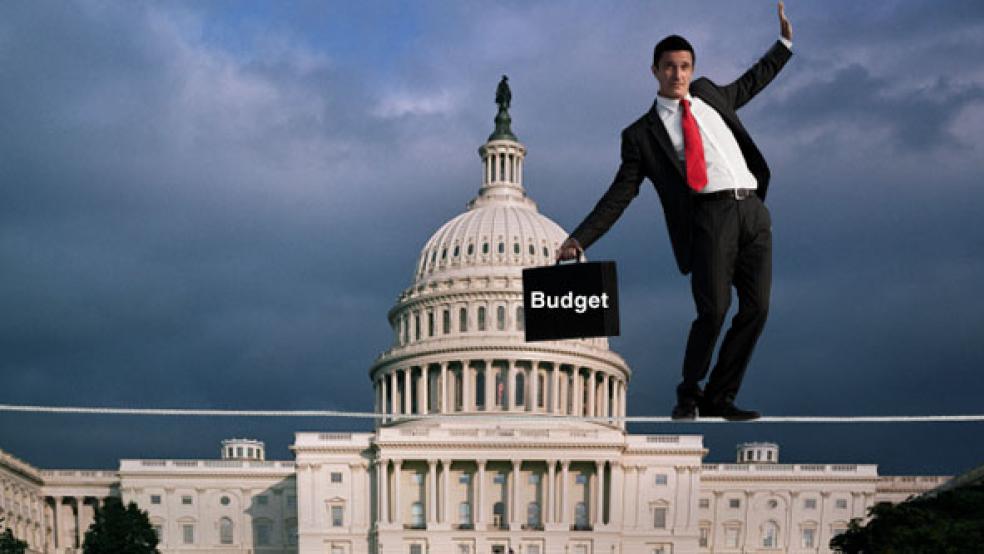Last December’s breakthrough bipartisan budget deal that suspended the sequester and set spending levels for the next two years has raised an interesting question for Washington’s budget mavens.
If House Budget Committee Chairman Paul Ryan (R-WI) and Senate Budget Committee Chairwoman Patty Murray (D-WA) could hammer out a two-year budget that will negate the need for the warring political factions to butt heads again for 48 months, why doesn’t Congress change its rules so it only has to pass a budget once every two years?
Related: Rising Interest Rates Could Hurt the U.S. Economy
Admittedly, budget reform does little to stir the passions of anyone other than Washington’s green-eye-shade set and assorted lawmakers and leaders stuck with the task. Yet the Byzantine process – demanding seemingly endless incremental steps and compromises – has proved to be an enormous time suck in an increasingly dysfunctional Congress.
The current budget rules, last totally overhauled back in 1974, require an elaborate annual ritual beginning with the president submitting a budget plan for the coming fiscal year that invariably is declared “dead on arrival” on Capitol Hill.
Then the House and Senate Budget Committees – seemingly operating on different planets – adopt grossly different blue prints that must be reconciled in conference, but often aren’t. Finally, the House and Senate Appropriations Committees are given instructions on how much revenue they can carve up into a dozen separate spending bills to fund government agencies and programs for the coming year.
Since 2001, Congress has successfully enacted only 13 spending bills on time, according to House figures. The situation is even worse in election years. In the past eight election years, Congress has failed to pass a budget 75 percent of the time.
The bitter budget battle last fall over Republican efforts to defund President Obama’s signature health care law resulted in a 16-day partial government shutdown in October.
So what to do?
G. William Hoagland, a senior vice president of the Bipartisan Policy Center and a former Republican Senate Budget Committee staff director, says biennial budgeting would offer a saner, more rational and efficient approach.
Related: How the Government Shutdown Shook Up the U.S. Economy
“We’ve all recognized that we have de facto fallen into a two-year appropriations and budget process by recognizing what the Murray-Ryan budget agreement did back in December,” he said in an interview this week.
Under a biennial approach, Congress and the president would spend the first year hammering out their differences over a two-year spending and tax plan and then use the second year for oversight to make sure taxpayers money was being spent properly. In the event of emergencies or unanticipated expenses, Congress could tweak the two-year plan to add or reallocate the needed funds.
“If you’re spending all your time appropriating and budgeting, you’re not able to free up members’ time and attention to deal with the underlying authorization and oversight process,” Hoagland said. “It’s good governance.”
Hoagland is not alone in his assessment.
Back in 2011, House Republican leaders including Speaker John Boehner (R-OH) considered asking the White House to back a significant reform of the federal budget process in exchange for raising the debt ceiling. The proposal would have required the president to submit a budget every other year at the beginning of the first session of Congress. But that proposal later was shelved at the height of the debt-ceiling crisis.
Related: A Two-Year Budget? GOP Sen. Thune Joins the Chorus
Last March, the Senate approved a non-binding amendment to its version of the fiscal 2014 budget resolution that would convert the current budget and appropriations system to a two-year cycle. That amendment – agreed to by a vote of 68 to 31 -- was sponsored by Sens. Johnny Isakson (R-GA), a long-time proponent, and Jeanne Shaheen (D-NH).
Meanwhile, in the House, Rep. Reid Ribble (R-WI) introduced a similar measure -- The Biennial Budgeting and Enhanced Oversight Act. So far, that bill has attracted 136 Republican and Democratic co-sponsors, including Ryan and a small handful of other committee chairmen and leadership members.
“Congress needs adequate time to consider all the data surrounding federal programs and their costs,” Ribble said in a statement. “Switching to a biennial budgeting system allows for Congress to provide greater oversight of appropriations, enhanced economic certainty in the private sector, and savings in taxpayer money."
The concept has strong backing from numerous budget and tax watchdog and advocacy groups, including The Committee for a Responsible Federal Budget, Third Way, Concord Coalition and the National Taxpayers Union. But this idea has plenty of detractors – especially from members of the appropriations committee who prefer to have a say every year in how public funds are being spent. Only seven of the 29 Republican and Democratic members of the House Appropriations Committee have signed on to Ribble’s bill.
Related: The Decline and Fall of Federal Budgeting
J. Keith Kennedy, a former Republican staff director of the Senate Appropriations Committee, said this week that biennial budget is a bad idea “because the annual appropriations process --when you make it work -- is the most rigorous way for the Congress to exert its influence over the actions of the executive branch.”
Kennedy, a senior public policy adviser with the Baker Donelson law firm, said that a move to budgeting every other year would also invite endless headaches for Congress. “You would have to do a gazillion amendments and supplementals” to keep up with changing events, he said. “That to me weakens the proponents’ arguments about saving legislative floor time.”
Advocates of biennial budgeting frequently note that state governments have been using that practice for decades. However, the trend among state governments for the past 70 years has been to abandon biennial budgeting for annual budgeting. Forty-four states enacted biennial budgets in 1940. Only 19 do now, according to a 2011 analysis by the National Conference of State Legislatures.
Top Reads from The Fiscal Times:





